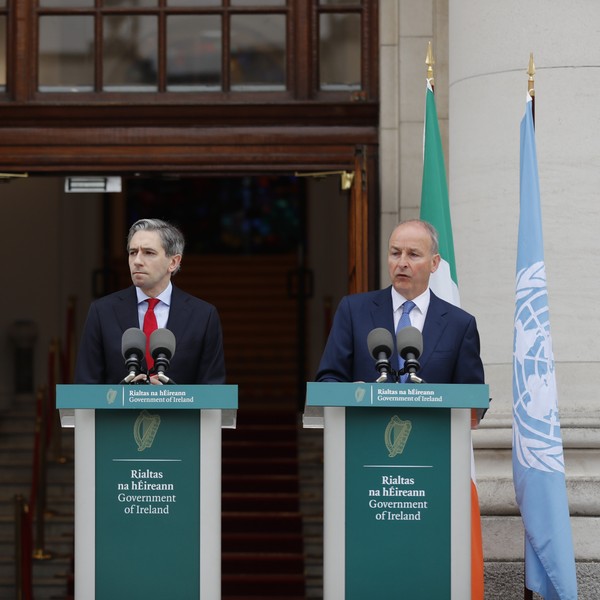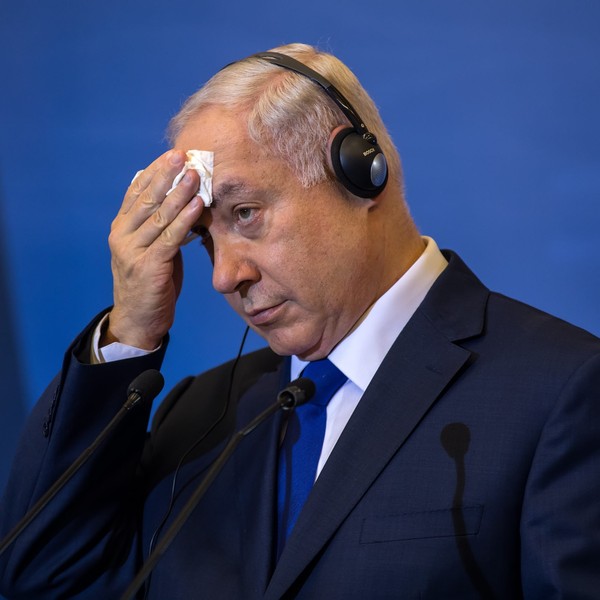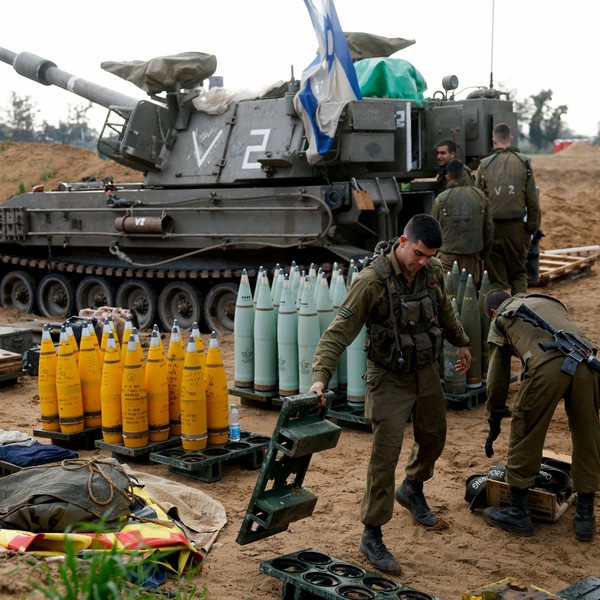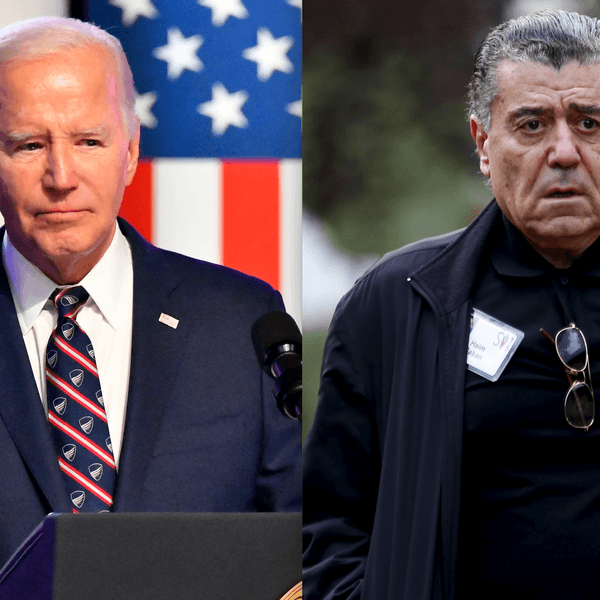With NATO’s 75th anniversary summit drawing near, German Chancellor Olaf Scholz told the Munich Security Conference in February that Germany would this year meet NATO’s 2% of GDP target for defense spending and would sustain this level “through the 2020s and 2030s.”
But Bastian Giegerich, the head of the London-based International Institute for Security Studies, has said that reversing the effects across Europe of more than 20 years of underfunding of defense capabilities will take at least a decade of substantially increased defense spending. He’s not alone in thinking this way, and for good reason.
Germany’s 2024 budget allocates 51.8 billion euros for defense, by itself short of the 2% of GDP NATO benchmark. Germany seems on course, however, to meet the target by drawing down the 100 billion euro emergency fund announced by Scholz in his famous Zeitenwende (epochal change) speech to the Bundestag in February 2022. Disbursements from this fund are projected to keep Germany’s defense spending at or above the 2% of GDP mark through 2028, after which Germany plans to fund defense through the regular budget process.
Achieving this will require an increase of approximately 30 billion euros over the 2024 defense outlay.
An increase of this magnitude to defense spending from the regular budget process will require overcoming very serious obstacles. Germany has well established limits on the fiscal deficit, which will create politically destabilizing distributional conflict when other spending priorities are forced to adjust to make room for a bigger defense budget.. This constraint will be even more binding if the economy, expected to grow at only 0.2% this year, remains weak.
Fiscal probity is baked into German political culture and shored up by formal legal constraints. The “debt brake” written into the constitution in 2009 holds the federal budget deficit to 0.35% in any budget year. The opposition Christian Democratic (CDU/CSU) party, which, according to current polling trends, seems likely to return to power in the 2025 elections, is wary of any attempt to circumvent or reform the debt brake, which legally can be suspended only by invoking “emergency” conditions, as was done to fund pandemic spending, and to unlock 100 billion euros for defense spending in 2022.
Last November, Germany’s Constitutional Court ruled against the government’s plan to repurpose 60 billion euros of unspent COVID funding to pay for green energy transition programs. The ruling coalition had to scramble to fill the hole in its budget, exposing the vulnerability of Germany’s fiscal policy to distributional constraints.
Farmers took protests onto the streets of Berlin to demand restoration of their diesel fuel subsidy. This kind of social tension is likely to follow any attempt to shift massive resources to the defense sector by cutting other programs. The green energy transition remains a priority for the coalition’s two main parties — the Social Democrats (SPD) and the Greens — even though both are fully convinced of the need to boost defense spending. The fiscally conservative Free Democrats (FDP) and their leader, Finance Minister ChristianLindner, adamantly oppose reforming the debt brake or raising taxes.
The only obvious way to square this circle would be to consider the continuing war in Ukraine an emergency and thereby unlock another 100 billion euros. This is obviously not an ideal way to finance a program of rearmament that might take decades, and such a maneuver might not survive scrutiny by the Constitutional Court in any case.
It is becoming evident that, even with the provision of emergency funding, the defense industrial base can expand only gradually, and weapons procurement processes are limited by the time needed to manufacture new weapons and equipment, whether from Germany, elsewhere in Europe or the United States. For example, the 18 Leopard 2 battle tanks ordered to replace those supplied to Ukraine will arrive two years from now at the earliest.
Meanwhile, Ukrainian president Zelensky recently assailed Germany for not delivering the Taurus missiles; he claimed Berlin decided the missiles were necessary for defending Germany instead.
Social Constraints: Leadership and Public Attitudes
The German military was underfunded for years before February 2022, because the political leadership absorbed the liberal triumphalism of the 1989 democratic revolutions in Central and Eastern Europe and believed history pointed to global convergence on the liberal democratic model.
Efforts to expand military recruitment began after the 2014 Russian takeover of Crimea, but has failed to attract new recruits in sufficient numbers. The number of troops remains stuck at 180,000. Some are now calling for reinstituting mandatory military service.
The most effective and vocal advocate for Germany’s rearmament is Defense Minister Boris Pistorius, an SDP politician widely touted as a possible successor to Scholz. Pistorius has said that the Bundeswehr must be made “kriegstüchtig” (war ready) and warned that Russia might attack a NATO member within the coming 8-10 years.
These statements, very much against the grain of Germany’s antecedent anti-militarist political culture, have not dented Pistorius’ popularity. German elites and, to a lesser extent, the broader society seem to be moving toward greater acceptance of the need for national rearmament.
The European Vision: Too Many Cooks?
The European Commission has advanced its own plans to coordinate the financing of rearmament across Europe, favoring and fostering synergies among European defense-industrial firms. In principle, this initiative should pose no problem for Germany since Scholz, a committed European, has repeatedly stated that the EU is the framework for Germany foreign and security policy.
Nevertheless, the Commission risks competing with member nations for available resources for equipment and weapons acquisition. Most member countries, including Germany and France, conceive of defense cooperation in a multilateral pan-European context, but would insist that member nations remain in the driver’s seat.
Emmanuel Macron’s exhaustive vision for Europe— the “Sorbonne II” speech of April 26 — dealt extensively with the European imperative to develop a more capable conventional deterrent, albeit within NATO.
His framing of the issue was the stark warning that “Our Europe can die,” but he did not endorse any pooling of national sovereignty on defense policy. On the contrary, he pledged personally to convene “all partners” to develop a “new defense paradigm” for the “credible defense of the European continent.”
This is an intergovernmental framework rather than one featuring a leading role for the European Commission.
Why the Path Ahead is Difficult
Bastian Giegerich of IISS says that for Germany “the mental shift, the societal resilience” needed to underpin rearmament “has not happened.” This is true, but it is not only a matter of changing hearts and minds. Germany’s limitations are embodied in its institutional framework and very resistant to change, given the perceived challenges from the populist right, the climate policy imperative, its generous social safety net, the fragmented party system, the self-imposed but broadly popular fiscal constraints, and complex coordination problems with key partners (above all France) and the European Commission. This transformation, even if embraced without reservation by Scholz or his successors, is a vastly complex and fraught agenda.
- Germany charts its course in unstable geopolitical waters ›
- France and Germany on the rocks as Ukraine crisis deepens ›















